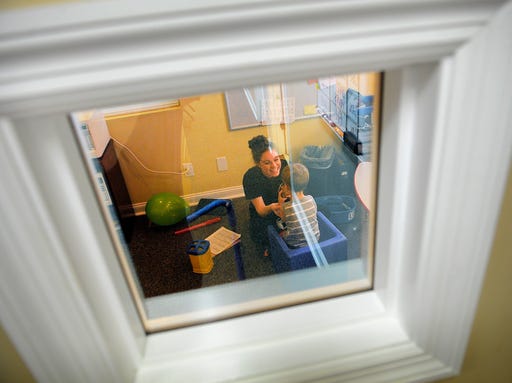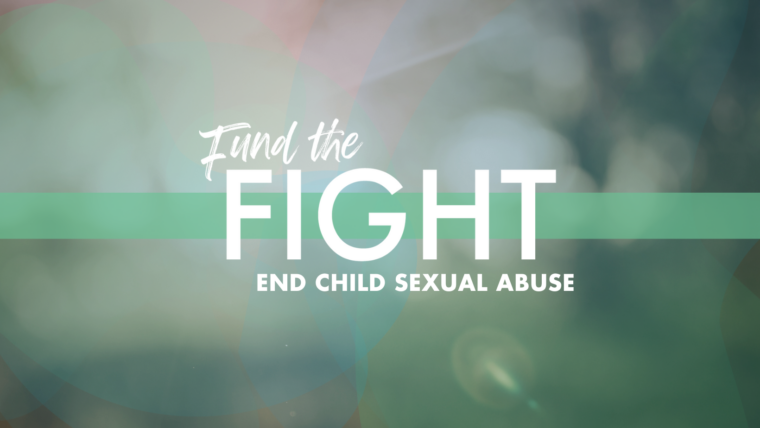Excerpt from article in The Tennessean.
I t’s a taboo that parents at the Brown Center for Autism don’t want to talk about.
t’s a taboo that parents at the Brown Center for Autism don’t want to talk about.
Their children, and all kids with developmental disabilities, are four times more likely to be sexually abused than their peers. That’s especially scary for parents of children who cannot speak.
Protecting those children is the idea behind a training program gathering momentum in Nashville — an approach that Juli Liske, founder of the Brown Center, thinks holds great promise for guarding against the unthinkable.
“It’s a topic that our parents hate. And they always feel there are no good solutions,” Liske said.
But she sees many steps that organizations can take. The way Liske designed therapy rooms, the staff policies in place and the center’s surveillance system all take on the mission of protecting kids.
“We wish other people would model what we’re doing,” she said.
Liske’s wish has backers. This spring, the newly formed Nashville Child Protection Coalition launched a campaign to explain best practices for organizations and to train 25,000 adults on the latest methods of preventing sex abuse.
Local nonprofits agreed that a two-hour class, Stewards of Children, teaches the right approach. The class points out that kids can’t protect themselves. So the responsibility falls on adults, and especially leaders of after-school programs, gyms, churches and schools, to be their protectors.
Liske bought in. She required all her staffers to go through the training and she became an instructor. Later this month, she’ll go further, asking Brown Center parents to take the training.
Cameras watching
Parents of autistic children say there’s something different about the Brown Center. There’s an openness and a sense of trust they feel as soon as they walk inside.
“It’s an automatic: ‘We have nothing to hide here,'” said Denisse Edwards of Mt. Juliet.
Here’s how Liske sets the tone:
It starts with the spaces. In every therapy room, a window with a one-way mirror allows supervisors and parents to peek in at any time on typically one-on-one sessions.
Up above, there’s a camera in every room feeding footage out to the real surprise for first-time visitors: a separate viewing room where parents camp out each day, watching (and recording) therapy sessions in real-time.
“This is the only place we go where I can watch him,” said parent Kristin Waldran of Nolensville.
The technology doesn’t stand alone. Liske conducts deep background checks on staff. And she doesn’t disguise her expectations for employees and interns.
“That says a lot about the integrity of a person who is willing to come work for an agency and who knows they’re going to be under surveillance at all times,” she said. “They see all the cameras, they see the monitors, they see the parents observing.”
Missions at stake
Seeing such an all-out effort from the Brown Center has brought new energy to the local coalition’s fight against sex abuse, said Katherine Snyder, programs director for Prevent Child Abuse Tennessee.
The trainings also have the backing of the Crichton Group, an insurance agency for numerous local nonprofits that sent company Vice President Cooper Jones through the class this year.
“What’s at stake? Honestly, it’s their missions,” Jones said after the class. “If you have an organization that prides itself on being a safe place for kids, or elderly adults, and they do have somebody who gets through the system and hurts kids or other vulnerable people, you’re really looking at the name of the organization. And fundraising comes with that.”
Yet those who go through the training know that proper policies only go so far.
There’s also need to create a culture where discussing sexual abuse isn’t the taboo that it is today.
Courage to talk about the issue
Giving parents the courage to talk about it — that’s the reason Liske plans to take Brown Center families through the training.
“Our concern is, when they leave here, do the parents have the skills to ask?” she said.
Read the original article, here.
For more information on preventing child sexual abuse in your community, visit The 5 Steps to Protecting Our ChildrenTM, or take D2L’s award-winning Stewards of Children® prevention training.



Dealing with the rape of a child in the state of Tennessee or ANY state is bad enough but to have one that can not speak for themselves is even harder !. My hearts go out to any parent/victim of these crimes. We are currently dealing with the rape trial of our daughter.We aren’t in the position of the parents in this blog. But I have to say this, this crime alone makes a child lose the ability to speak sometimes. They have no idea how to “tell” what has happen to them. many times it is a silent crime. Scared because they person that has done this has told them “nobody will believe you”. All we can do is continue to educate and talk to our children and hope they speak out. In our case the were no “signs” that so many people think you will see when this happens. The state of Tennessee needs to change laws to protect all children ! My daughter wants to push forward as part of her healing and getting thru this to make sure people know their rights as victims and victims families and help change these laws
Not only are autistic people more susceptible to being sexually abused but they are more likely to be labeled a sexual predator because of their autism.
A new book, The Autism Spectrum, Sexuality and the Law: What every parent and professional needs to know by Tony Attwood, Isabelle Henault and Nick Dubin. Scheduled release date, August 21, 2014 finally broaches this subject that I’ve been following for years http://goo.gl/eoquyw.
Mary